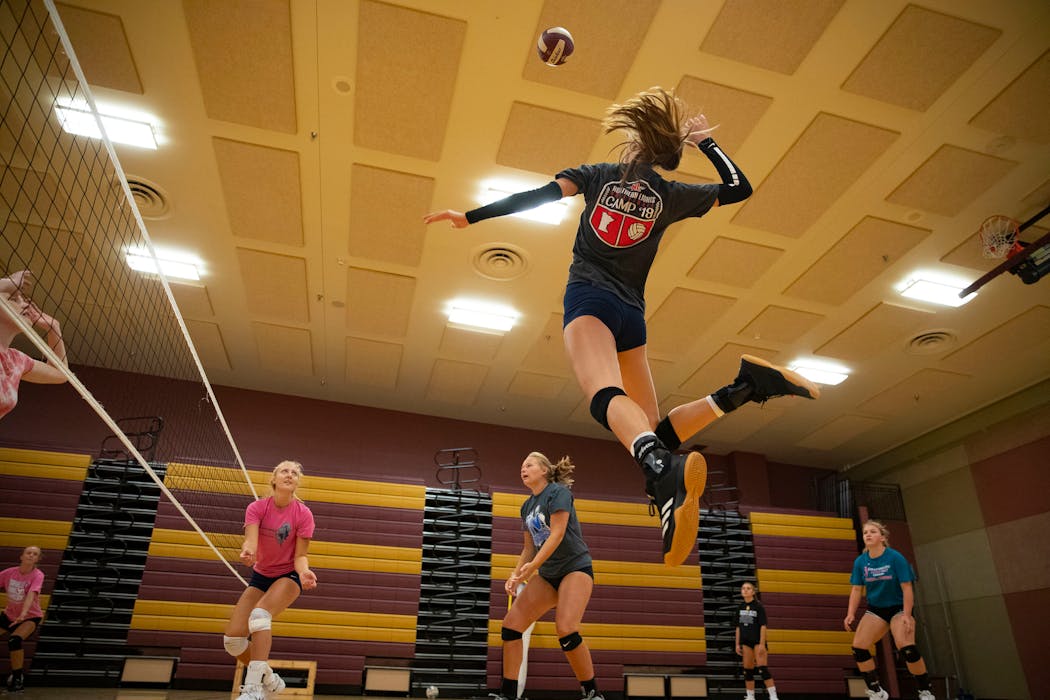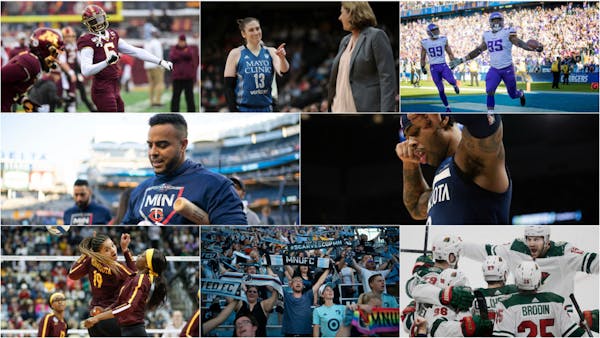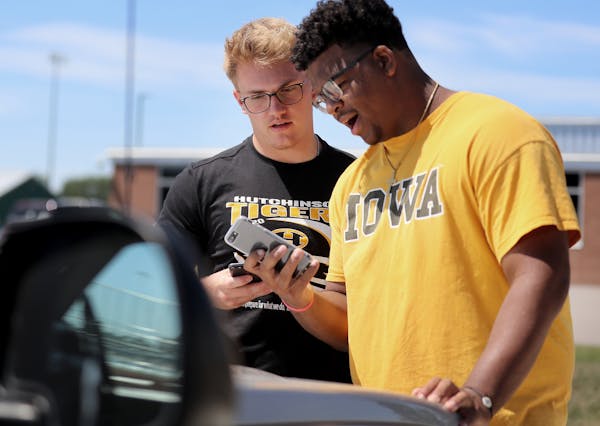No Minnesota high school football and volleyball games until March.
The state's sports with the most participants for boys and girls got the biggest disruption Tuesday as the Minnesota State High School League approved a fall athletic season set to look far different from any in its 105-year history.
Owing to concerns about the COVID-19 pandemic and the risk of spreading the virus, football and volleyball will be played in a new, shortened season — carved out between winter and spring sports — that concludes in mid-May. Other fall sports will start on time this month but with shortened seasons and limited competition.
The new season means that spring sports such as baseball, softball and lacrosse will be pushed back and conclude in July rather than June.
Reactions to the league's highly anticipated decisions, made in a virtual board of directors meeting, ranged from disappointment and shock to excitement and relief among tens of thousands of athletes, coaches and officials at more than 500 schools across the state.
"The reality is that there is not going to be a season like last year," league associate director Bob Madison said during the meeting. "Coaches would love to start in the fall, but what they want is the best opportunity to compete in their sport."
Minnesota is one of 31 states that have delayed fall sports and among 10 that have moved football to a different season, according the National Federation of State High School Associations.
To reduce the risk of virus exposure, the football season will have just six regular-season games instead of the traditional nine, played with locally based schedules. Volleyball tournaments, which make up a large segment of that sport's season, would be eliminated. Neither sport would allow scrimmages.
"Our coaches are excited that we're planning on [those seasons] being there," said Mahtomedi athletic director Aaron Forsythe. "They all wanted to play this fall, but there's a sense of relief that our volleyball and football players have something to look forward to."
The board voted to allow other fall sports — cross-country, soccer, girls' swimming and diving and girls' tennis — to begin competition Aug. 17, as planned, but with modifications similar to football and volleyball. All will have fewer contests and shorter seasons. Multi-team events are eliminated, with only two teams allowed for swim meets and tennis tournaments and a maximum of three for cross-country. The league also eliminated scrimmages and will require teams to restrict travel and play local games only.
Specific guidelines and protocols for each sport will be left up to their respective advisory committees. The league said Minnesota Department of Health guidelines must be followed for fan capacity and transportation, and that games will be suspended for school districts using only distance learning.
The decision to move football and volleyball to the spring elicited some of the strongest reactions.
"My thought was that you give it a shot [in the fall] and if it doesn't work, you push it back," said Elk River football coach Steve Hamilton. "I don't know that there's an easy answer. I just feel bad for the kids."
Minneapolis Southwest football coach Josh Zoucha said his players had been worried about Tuesday's decision since last week. They lingered around the practice field after Friday's workouts, hoping to get a positive word from Zoucha.
"They asked me: Tell the truth — are we going to have a season?" Zoucha said. "They've had so much taken away from them, they assumed the worst."
Zoucha said the absence of football is more than just a loss of opportunity for many of his players. It severs any remaining ties with the school since Minneapolis Public Schools plans to start the school year under a distance learning model.
"I had a kid tell me that if there's no football, 'I don't know if I would keep going to school,' " Zoucha said. "People don't realize the emotional and psychological importance of athletics. The camaraderie, the leadership. Just the chance to have a connection to the school. That's important. I'm worried about losing kids."
After the vote to move football to spring, the league board voted to allow football and volleyball teams to hold practices in the fall. Zoucha said that will provide a lifeline to allow him and his team to remain connected. High school sports have been shut down since March.
"A lot of kids kind of fell off during distance learning," he said. "I've never had summer workouts like this year. Everyone was clamoring for something resembling normalcy. My kids have that concept of family. Being around each other, even if they don't get to play until next spring, will keep that going. Some football is better than no football."
The closest votes Tuesday dealt with the proposal to move volleyball. The sticking points were the Minnesota Department of Health's requirement that any indoor sport played in a place where educating takes place, such as a gymnasium, is off-limits to all visitors, including spectators. The deferred season also comes at the height of the Junior Olympic club season, the lifeblood of youth volleyball.
Eagan coach Kathy Gillen admitted to being "shocked" that the season was moved.
"March, April and May, those are important [recruiting] months for JOs, March especially," she said. "Girls have already lost a year of recruiting already. How can they play both JO and high school? The top kids will play JO in a heartbeat."
Gillen, whose Eagan team has played six consecutive Class 3A championship matches, winning three, said she could potentially not field a team next spring. "All of my girls would be playing JO," she said,
The potential lack of spectators, she said, was overblown. "You can do it with no fans. Baseball is doing it right now. We've been in the gym all summer long and have had zero issues. I appreciate the work [the league] put in, but I think they've got this one wrong."
Scott Jackson coached Wayzata's volleyball team to a victory over Eagan in last year's 3A final and also runs the Minnesota Select JO club. He acknowledged "challenges" with the move, but said he believes it can work "with a little creativity and a little sacrifice."
"Let's get after it and make it work,'' he said. "We can have a really robust club volleyball experience and still accommodate high schools."
Staff writer Marcus Fuller contributed to this report.

Souhan: This is KAT's chance to prove Flip Saunders was right




